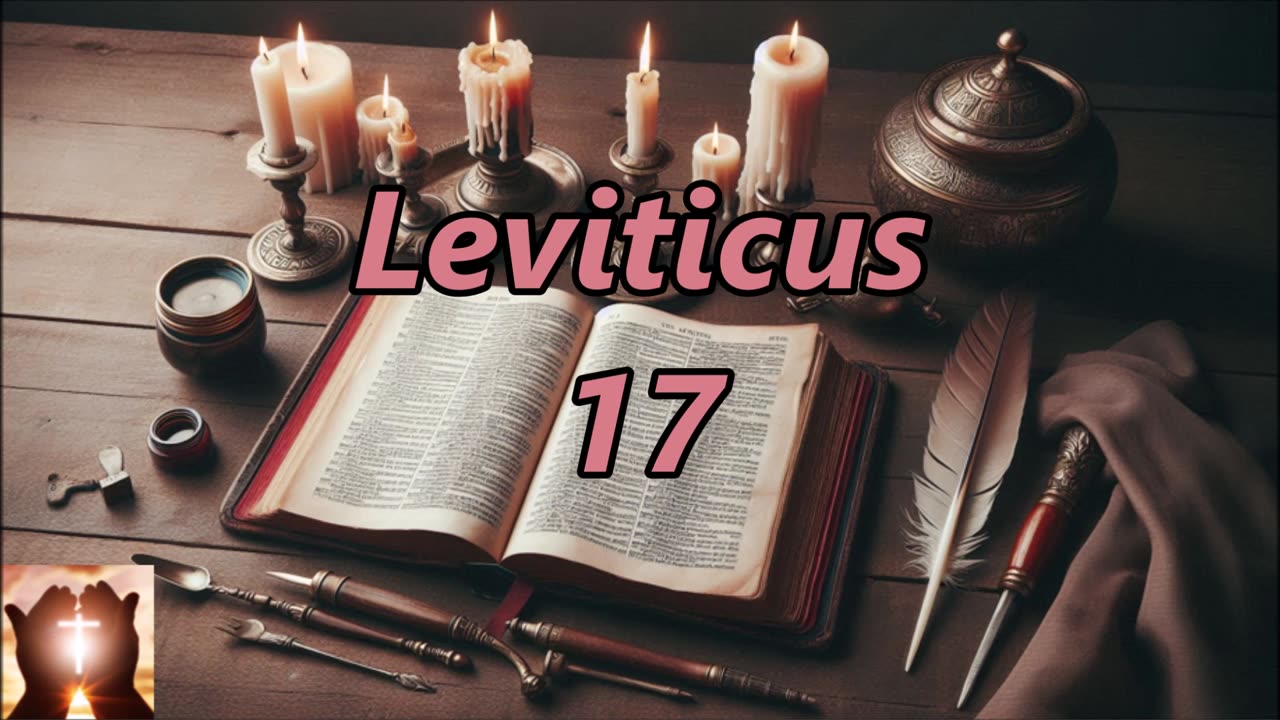Premium Only Content

Leviticus 17
Sacrifices Must Be Brought to the Tabernacle (vv. 1–9):
Any Israelite who kills an ox, lamb, or goat for sacrifice must bring it to the entrance of the Tabernacle.
Offering sacrifices elsewhere is considered blood guilt—a serious sin.
This law prevents idolatry and sacrifices to goat demons (v. 7).
Both Israelites and foreigners living among them must follow this law.
Prohibition Against Eating Blood (vv. 10–14):
No one may eat blood, under penalty of being cut off from the community.
The reason: "The life of the flesh is in the blood" (v. 11).
Blood is given for atonement on the altar, symbolizing life offered in place of the sinner.
Blood represents life and belongs to God alone.
Rules for Handling Dead Animals (vv. 15–16):
If someone eats an animal that died naturally or was killed by another animal, they become ceremonially unclean.
They must wash their clothes and bathe; otherwise, they bear their guilt.
Spiritual Lessons:
Worship must be done God’s way—not according to personal preference or cultural norms.
God demands exclusive devotion; idolatrous practices are strictly forbidden.
Life is sacred, and blood symbolizes that life. It is not to be treated casually or consumed.
Atonement requires life for life—pointing ahead to the sacrifice of Jesus, whose blood gives eternal life (Hebrews 9:22, 1 John 1:7).
Christians are reminded that worship, sacrifice, and obedience must be centered on Christ, our true altar (Hebrews 13:10).
-
 1:04:57
1:04:57
The Rubin Report
1 hour agoCrowd Stunned by Trump’s Brutally Honest Remark at Charlie Kirk’s Funeral
24.4K19 -
 LIVE
LIVE
Grant Stinchfield
1 hour agoThe Exploitation of Charlie Kirk's Death is Very Real
141 watching -
 1:40:13
1:40:13
Nikko Ortiz
2 hours agoJapan's Prison System Is CRAZY...
7.84K1 -
 LIVE
LIVE
The Mel K Show
1 hour agoMORNINGS WITH MEL K Globalist Descend on America: Is it Time to Pull the Plug? 9-22-25
679 watching -
 LIVE
LIVE
The Shannon Joy Show
1 hour agoEpstein Cover Up - Kash Patel Has Names Of Epstein’s Pedophiles. Live Exclusive With Nick Bryant!
208 watching -
 LIVE
LIVE
LFA TV
16 hours agoLFA TV ALL DAY STREAM ! | MONDAY 9/22/25
4,688 watching -
 9:08
9:08
Hollywood Exposed
20 hours agoMatthew McConaughey Shocks ABC Host With Blunt Message to Democrats
443 -
 1:01:18
1:01:18
VINCE
3 hours agoAre We Witnessing A Revival? | Episode 130 - 09/22/25
198K152 -
 LIVE
LIVE
Caleb Hammer
18 hours ago$426,000+ A Year On Pokémon | Financial Audit
89 watching -
 1:11:46
1:11:46
The Big Mig™
2 hours agoTruth Bombs w/ Tom Renz
6.93K12